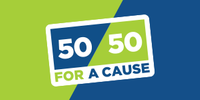For the month of April, SGI has shifted its focus over to the importance of reporting impaired driving.
While reporting an individual to the police is often regarded with a negative connotation, one key factor to keep in mind is that you could actually be saving that person's life, explained Tyler McMurchy, Manager of Media Relations for SGI.
“One of the things that we're trying to get across with this month's focus on impaired driving and specifically the Reporting Impaired Drivers (RID) program, is that it's not snitching,” he stated. “It's not tattling, it is something that not only makes the road safer for other road users, but it's something that actually might be helping out the impaired driver themselves.
“The reason we say that is when we talk about impaired driving fatalities, more than half of the impaired driving fatalities that we see are the impaired driver themself. So, the person most likely to be killed in an impaired driving collision, according to the statistics that we see, is the impaired driver. By calling the police, you might be saving that person's life.”
McMurchy added that due to the RID program, all it takes to report an individual you suspect is impaired to the police is pulling over and dialing 911.
“Any information they can provide will help, and the more details the caller can provide, the better,” he elaborated. “Operators will ask for information like the location, the direction the vehicle is traveling, a description of the vehicle such as the make and model, and the license plate number, what kind of driving behaviour is being exhibited by that driver, and if you have a description of the driver or the name of the driver, that's something that should also be provided.”
Common signs demonstrated by impaired drivers include the following:
- drifting in and out of lanes
- driving unreasonably fast, slow, or at an inconsistent speed
- tailgating and changing lanes frequently
- making exceptionally wide turns
- changing lanes or passing without sufficient clearance
- overshooting or stopping well before stop signs or stop lights
- disregarding signals and lights
- approaching signals or leaving intersections too quickly or slowly
- driving with windows open in cold or inclement weather
- driving without headlights or leaving turn signals on
“Police do an amazing job of enforcing impaired driving in Saskatchewan,” McMurchy added. “We see hundreds of charges every month related to impaired driving thanks to the strong work of the police. In 2022, there were more than 370 Criminal Code charges and 130 roadside suspensions that resulted from people making that call to 911 to report an impaired driver. So that's a huge help to the police and it goes a long way towards making our roads safer.”
Based on a five-year average from 2017 to 2021, impaired driving collisions kill an average of 34 people per year in Saskatchewan.
Impaired drivers endanger pedestrians, cyclists, motorcyclists, and other motorists.
“Impaired, is impaired whether it's alcohol, legal cannabis, illegal drugs, or prescription drugs,” he stated. “If you are driving impaired by any substance whatsoever, that's not something you should be doing. Don't drive impaired and find another way to get where you're going if you are impaired by anything.”













